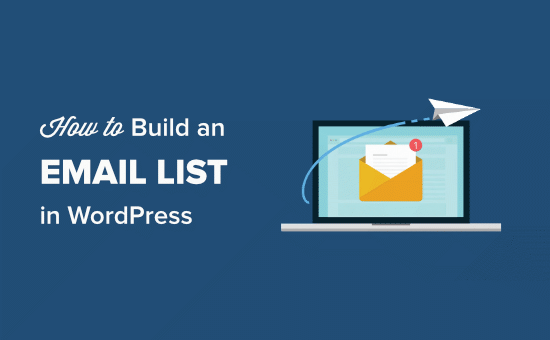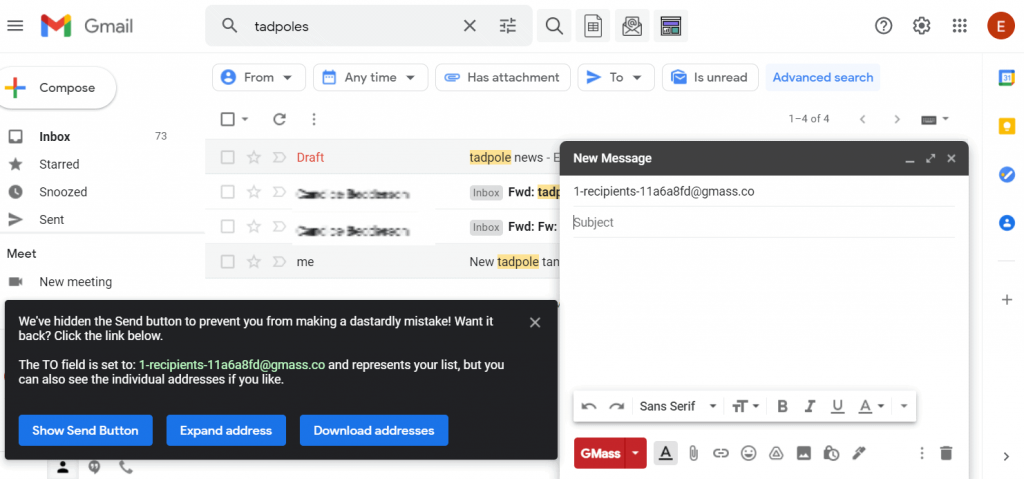Expert Guide For Selecting A Physical Therapists Email List
Expert Guide For Selecting A Physical Therapists Email List
Blog Article
What Should I Consider When Buying An Hematologist Email List?
In order to ensure that your list of hematologists is accurate, relevant, accurate and compliant with the law, it is essential be aware of several important factors. These are the most important factors to consider: Data Quality and Accuracy
Source of information: Check the provider's use of reliable sources, such as professional directories, databases or verified opt-ins by doctors of hematology. The quality of the list is determined by the accuracy with which contacts were collected.
Verification and Updates: Ask your service provider about its data verification and updating process. Email addresses must be verified to remove any invalid or inactive email addresses. The list should be updated often to ensure accuracy since healthcare professionals might relocate to different institutions or change positions.
Segmentation and Specialization: Be sure that the list is specific to hematologists. It can also be further segmented such as by subspecialty (e.g., pediatric oncology, hematology), the location, the years of experience, or even hospital affiliation. The lists that are well-organized help you to target your efforts more effectively.
2. Legal Regulations
Data Privacy Laws – Ensure the list complies with relevant laws and regulations, such as California Consumer Privacy Acts within the U.S.A. or General Data Protection Regulations in Europe. That means that email addresses have to be gathered with the appropriate consent.
The CAN-SPAM Act is a law in the U.S.A. make sure that the list complies CANSPAM Act that governs commercial email communications. Your emails may also be marked as spam if you don't adhere to.
Opt in Consent: Only include doctors on the list who have explicitly consented to receiving emails from other organizations. The sending of unwelcome emails to individuals without their permission could have an adverse effect on engagement, and may even result in legal issues.
3. Provider Reputation
Reputable Provider: Check the reputation of the listed provider. Find reviews, testimonials and case studies to ensure the company is reliable. A reputable company with a proven track record of providing high-quality and reliable information will be more likely.
Transparency - Choose a data provider who is transparent in regards to the source of the data and how it was collected. You should avoid providers that are unclear about the data collection methods.
Customer Service: It's crucial to select a provider with good customer service. You may need assistance with technical issues, list customisation, or concerns regarding compliance. A strong customer support can make a big difference.
4. Return on investment (ROI) and cost
Pricing Model: Take into account the pricing model, regardless of whether it's pay-per-contact, flat-fee or subscription based. Make sure that the cost matches the return on investment. This means that you must balance your marketing budget and the quality of your list.
Refund or replacement policy A reliable service provider will provide refunds or replacements to customers with invalid or out-of-date email addresses. Make sure you understand the policy's conditions prior to buying.
Value for money Comparing list features like segmentation options and data accuracy guarantees along with the cost. If the quality of data in the list isn't good, the cheapest list might not be the most appropriate choice.
5. Data Ownership and Usage
The differentiator between a single-use and a multiple-use email list. Understanding the terms of usage is crucial. You might be able to use the list only for one campaign through certain service providers, while others allow unlimited usage.
Exclusive vs. Shared lists: Determine whether the list belongs exclusively to your business or is distributed to other buyers. Exclusive lists usually result in higher engagement rates because contacts are less prone to receive emails from other sources.
6. Data Integration and Format
Integration with CRM or email Tools: Ensure that the email list can easily be connected to your CRM or email marketing platforms. The list should be in standard formats, such as CSV and Excel. This will allow for an easy integration.
Ease of Use: Assess how easy it is to manage and filter the list. Lists which are difficult to sort and manage could hinder the effectiveness of marketing campaigns.
7. Ethical Questions
Relevance to Hematologists Make sure that your outreach emails are relevant to hematologists. Sending them content that doesn't coincide with their expertise may result in poor engagement and negatively affect the image of your business.
If you send too many emails, it could be considered to be spam. Sending out too many emails frequently could lead to complaints about spam that could harm your sender's reputation.
Conclusion
It is important to consider the advantages and disadvantages of purchasing an hematologist's list. Focus on data quality as well as compliance with privacy laws, and the credibility of the company to ensure that you get an accurate, valuable and efficient list. By prioritizing segmentation, legal compliance and ethical marketing you'll be able to improve your return on investment while maintaining the trustworthiness of your brand through your outreach initiatives. See the recommended hematologists email list for more advice.
What Should I Think About Prior To Purchasing A Data Appending Device?
In order to determine if a data appending company is right for you it is crucial to evaluate several factors. The appending service should enhance your existing data and maintain compliance, accuracy and also ethical standards. Data appending is the process of adding information to your database, like demographic information and phone numbers as well as email addresses. There are a few important points to make when buying data appending:1. Accuracy and Quality of the Data
Data source Be sure that the appending service is utilizing trustworthy and high-quality sources, such as authentic databases public records, or directories that allow opt-in. Trustworthy companies typically employ legitimate data sources. The information appended must be as accurate as pertinent.
Verification Process: Check whether there is a procedure that the service provider has in place to verify and confirm the information. This ensures that the data is up-to-date, accurate and applicable for your needs. As part of the services provided by your provider it is expected that you receive regular updates and data cleansing.
Match Rate: Providers can have various match rates. This relates to how many of your records can be enhanced by incorporating new information. Find a balance between accuracy of data and a high rate of matching.
Customization: Make sure that the service provider offers customizable solutions for data append. This can include adding various types of data, like firmographic data and demographics, as well as information about behavior.
2. Data Security and Privacy
Compliance with Regulations – Data appending is a service that handles sensitive personal information. It is therefore crucial to be in compliance with privacy laws such as the California Consumer Privacy Act and General Data Protection Regulation. The data appended must be processed and legally collected so that it can avoid penalties and damage to reputation.
Consent Management - Ensure the data comes from people who have explicitly consented to the sharing of their personal data. Avoid data sources based on unsound practices or compromise the privacy of the users. This could result in legal and ethical issues.
Data Security - Verify the provider's data security policies to ensure the integrity and confidential of your database, as well as any information that is added to it. In this list are protocols for secure data transfer encryption, access controls as well as other security measures.
3. Provider Reputation
Vendor with a Good Name: Search for a business that has earned a reputation for delivering data appending solutions that are reliable and compliant. Read their reviews, testimonials and case studies to see how they have performed. A vendor with a long history is more likely to provide top-quality services and adhere to the legal regulations.
Certain companies are focused on specific industries such as healthcare, finance or retail. You should look for an organization that is skilled and knowledgeable in your specific field if you are in a particular niche. They may offer solutions that are specifically tailored to your needs.
4. Cost and return on investment (ROI)
Pricing Model: Data appending services typically provide different pricing models, such as per-record pricing or flat charges for batches of updates. Make sure you know how the cost structure aligns with your budget. Be wary of low-cost options as they could reflect poor quality information.
Estimate your potential ROI by adding data. Good services will increase engagement, improve conversion rates, and overall marketing performance. Comparing the cost of a service versus the benefits you are likely to get from having better and more useful data is a good way to assess the value of a service.
5. Appending Types and Data Types
Types of Data: Consider the type of data you want to add to your database. Common types are:
Email Addresses are essential to email marketing campaigns.
Phone numbers: essential for sales outreach or Customer Support.
Demographic information is utilized to segment and target marketing.
Firmographic data is a must for B2B companies that target businesses based on revenue or employee size.
Some providers allow for the addition of social profiles, which can be useful for digital and social marketing.
6. Data Integration and Format
Compatibility: Ensure that the attached data is delivered in a format that works with your CRM system. (CRM) system and marketing automation software or any other tool you employ. CSV and Excel are the most commonly used formats. API integration is also available.
Data enrichment and cleaning: An appending service that is reliable should provide data cleaning services in addition. This includes correcting incorrect information, removing redundant records, and erasing old records. Data enrichment goes beyond just adding data. It improves the quality of your data.
7. Ethical Aspects
Transparency - The service provider should be upfront about where and how the data is taken. Services that append data that are ethical will have strict policies regarding data sourcing, usage and collection. This ensures the data is collected in a legal and transparent manner.
Effect on Engagement: Be aware that adding contact information, such as emails or phone numbers shouldn't lead to spammy or invasive practices. Use the appended data responsibly, and ensure you follow best practices for outreach, including opt-out options and respecting consumer privacy.
Conclusion
When buying data appending service pay attention to the quality of data legal compliance, as well as the reputation of the provider. Choose services that provide safe, authentic data that is compliant with privacy laws such as GDPR and CCPA. Be sure that the data appended is compatible with your existing system and take into account the ROI long-term of investing in accurate data. Data appendage can boost your business and marketing performance by selecting the best supplier. Take a look at the best data appending services for site info.